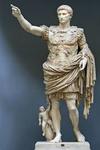World History to 1550 Flashcards
Alexander the Great
A ruler of Greece in the
fourth century b.c. As a general, he conquered most of
the ancient world, extending the civilization of Greece
east to India. Alexander is said to have wept because
there were no worlds left to conquer. In Alexander’s
youth, the philosopher Aristotle was his tutor.
✥ Before beginning his conquests, Alexander allegedly
unloosed the Gordian knot by cutting through
it. It was believed that the person who unfastened the
Gordian knot would rule a vast territory in Asia. Alexander
founded the city of Alexandria, which became
a great center of learning in Egypt.

Athens
A leading city of ancient Greece, famous for
its learning, culture, and democratic institutions.
The political power of Athens was sometimes quite
limited, however, especially after its defeat by Sparta
in the Peloponnesian War. Pericles was a noted
ruler of Athens. (See also under “World Geography.”)

Attila the Hun (at-il-uh, uh-til-uh)
A king of the
Huns in the fifth century. Attila’s forces overran many
parts of central and eastern Europe. His armies were known for their cruelty and wholesale destruction, and
Attila himself was called the “scourge of God.”

Augustus Caesar
The first emperor of Rome; the
adopted son of Julius Caesar. In his reign, from 44
b.c. to a.d. 14, Rome enjoyed peace (see Pax Romana),
and the arts flourished. The time of Augustus is considered
a golden age for literature in Rome.
✥ Jesus was born during Augustus’s reign. ✥ The
month of August is named for Augustus. ✥ A time
when literature and the arts in a nation are at their
height is sometimes called an “Augustan age.” The
eighteenth century in England, when many excellent
authors were at work, is called the Augustan Age of
English literature.

Aztecs
A Native American people who ruled Mexico
and neighboring areas before the Spaniards conquered
the region in the sixteenth century. Starting in
the twelfth century, they built up an advanced civilization
and empire. (See Hernando Cortés and Montezuma.)


